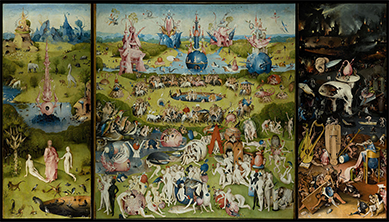Q. What can reasonably be known about the views of the afterlife and resurrection held by Jesus, the Pharisees, and the Sadducees? In particular, why would the Sadducees have found Jesus’s answer adequate in
A. The point about Jesus’ reply to the Sadducees’ question is (a) that Jesus was going back to the Torah itself (the five books of Moses) which were the only ones the very conservative Sadducees regarded as really authoritative, and (b) that God defines himself there in terms of his relationship to Abraham, Isaac, and Jacob. The underlying point is that God would not define himself in relationship to people who were now non-existent.
From all that we can work out (the evidence is found in various places, from Maccabees to Acts to Josephus to the Rabbis) that the Pharisees in Jesus’ day believed in bodily resurrection. That is, that when God’s people died they would be with God (in some sense hard to define, and they didn’t try to define it), until the dawn of the ‘new age’ or ‘the age to come’, at which point all God’s people would be given new bodies to share in that new world. The Sadducees, as far as we can tell, didn’t believe in that eventual transformation of the world or of human beings; and so they didn’t believe, either, in any post mortem ongoing existence. Resurrection was a dramatic and revolutionary doctrine; the Sadducees, being the conservative aristocrats, were naturally anxious about it.
Many Jewish debates function like chess matches: when it’s obvious that one side is in a winning position, you don’t bother to play out the final moves. (A glance through Danby’s edition of the Mishnah makes this point; often, he has to put a footnote in explaining, for those of us who are struggling to keep up, that the point just made meant that the argument was basically over.) What we have in Jesus’ conversation with the Sadducees was of this sort. Jesus pointed out that God wouldn’t define himself in terms of non-existent people; ‘memory’ is not good enough to do the job. But—and this is the bit we don’t hear, the last moves of the game which all parties in the discussion recognized—if they are alive this must be because God will in fact raise them from the dead. Modern western readers find this odd because we are mostly Platonists at heart, unused to thinking of bodily resurrection, content with a vague ‘life after death’. That is not the point here. The challenge of reading the New Testament is to get back into the minds of first-century Jews who really did believe that God created a good world and that he really would put it right at last—including raising people from the dead.
For further reading, you might try The Resurrection of the Son of God (2003) and Surprised by Hope (2007) both by N.T. Wright.



